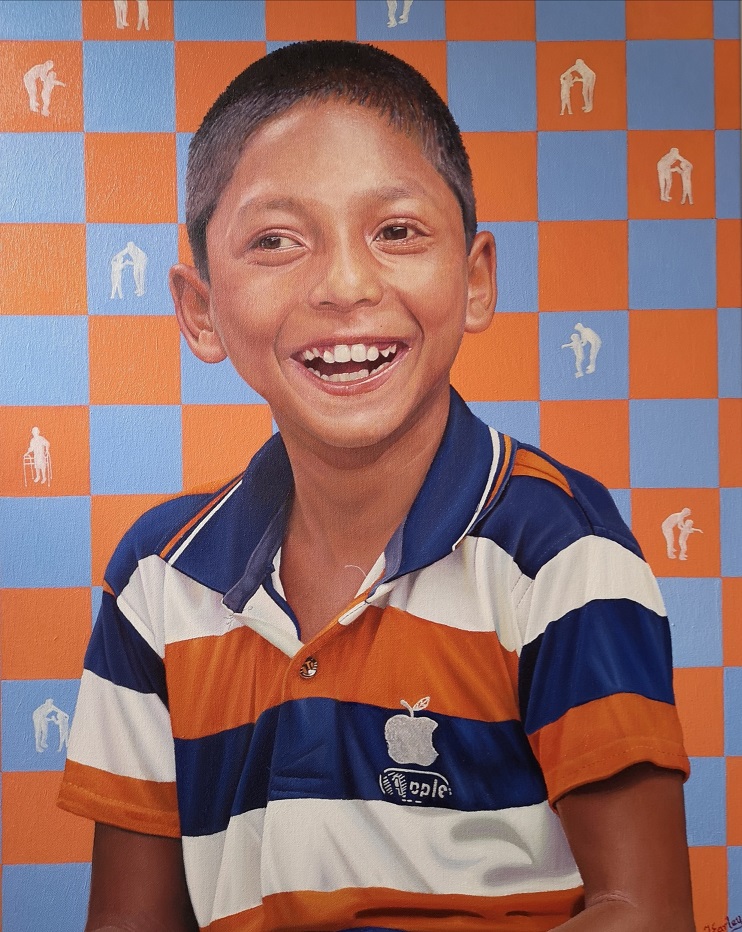James Earley Painting Exhibition
– The Bangladesh Series –

Tawhid
I remember seeing a video of Tawhid and being magnetised by his smile and his enthusiasm as he took his first steps. He was surrounded by his friends and family who seemed mezmerised by each small step and I could sense their pride for this brave little boy. Born with cerebral palsy, 13-year-old Tawhid developed locomotor disability and was unable to stand. In remote villages and chars of Bangladesh, disability is often seen as a curse or a penance for their parents’ sins. He needed assistance for the most basic of activities, like getting out of bed or going to the bathroom. His disability prevented him from going to school or playing with other children. His parents faced stigma from their community. Disabled children had no real help and no real hope.
In Koraibari, a river island (char) in Gaibandha district I had the pleasure of meeting Tawhid in person. I was of course struck by his smile which seemed even bigger in person, his eyes sparkled with undiluted joy, hope and happiness radiated from him. I wandered how Tawhid had got to where he was, how he had moved out of the darkness and how he had help to change the whole villages perception of disability.
In 2020 Friendship initiated a new project aimed at improving the lives of persons with disabilities in the river islands of northern Bangladesh. The programme includes door-to-door services like physiotherapy, counselling and routine follow-ups to households with persons that have a disability. It raises awareness through community sensitisation and youth groups to make the public more empathetic towards and inclusive of disabled people. It also informs persons with disability of their rights, and connects them to vital services. Tawhid and his family needed help and Friendship’s physiotherapists began therapy in his home, visiting every two weeks and prescribing exercises. Tawhid showed incredible improvement in a short time—first learning to stand, and then to walk, albeit on his toes.
Dr. Md. Mahfuzur Rahman, manager of the project, has observed a behavioural change in people towards disabled persons since its inception. Speaking at a training programme organised to build staff capacity on inclusion and familiarise them with the ethics and laws of handling persons with disability, he says, “People are more aware and sensitive about disabilities. Old beliefs such as that of disability being a curse are being blotted out, and disabled people are now more included in society. Moreover, disabled people are responding better to treatment and are learning to adapt to their conditions.”
The project is currently serving 970 disabled people in 15 chars in northern Bangladesh. Friendship is aiming to increase the project coverage to 15 more chars in the same region, allowing them to extend services to 460 more people with disability. Plans are underway to add more innovative services, such as building a digital multipurpose centre to facilitate learning and skill development for disabled people and their families; thereby creating accessibility for disabled people at their households and at Friendship establishments. Examples are creating ramps at their homes or disabled friendly latrines at schools, and collaborating with local governments to include disabled people in decision-making.
As the boat slowly moved away from the island, realising that I would probably never see Tawhid again I knew that this was a person that I would never forget.
